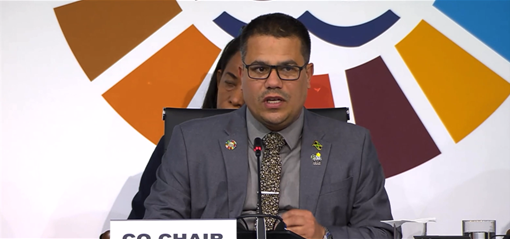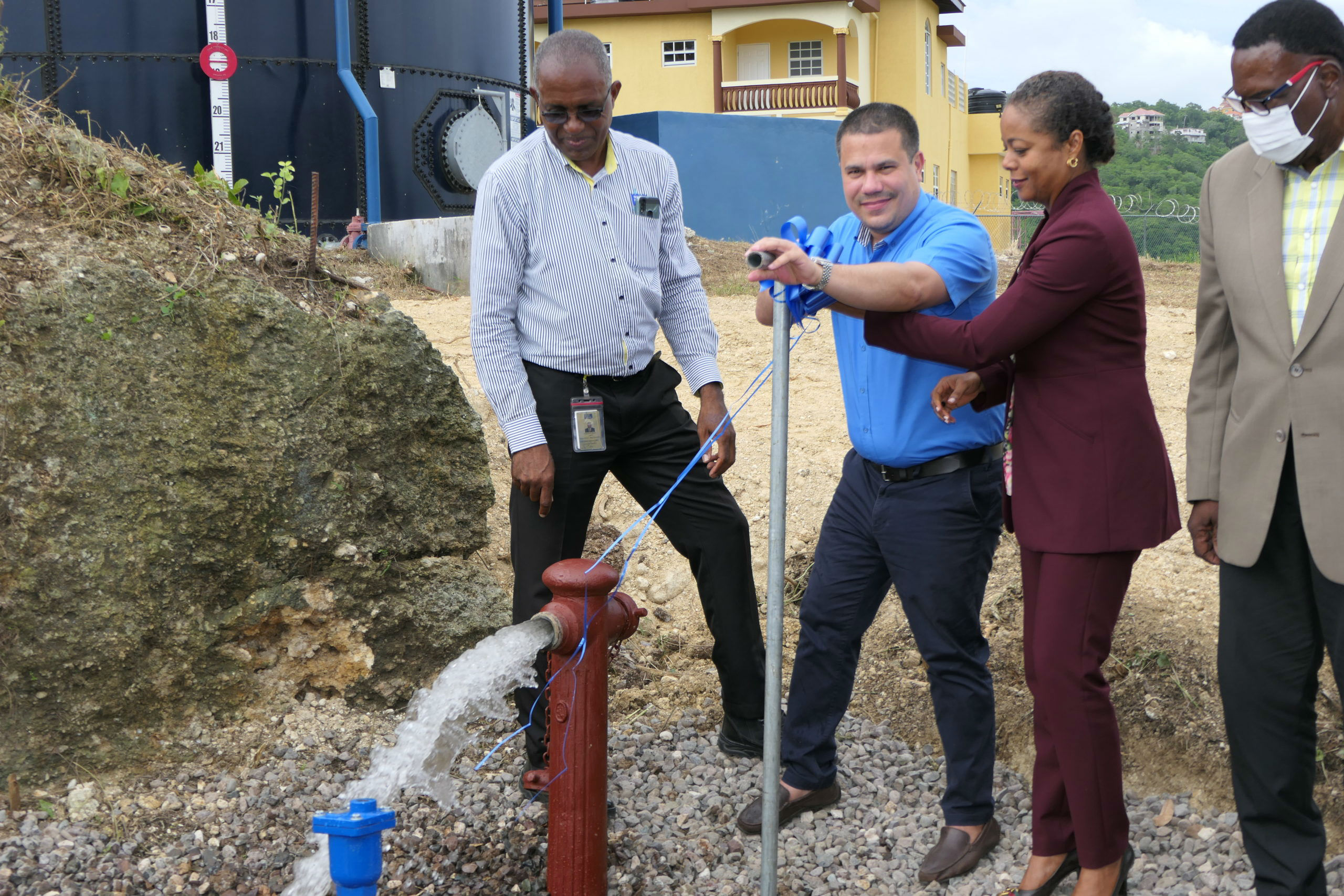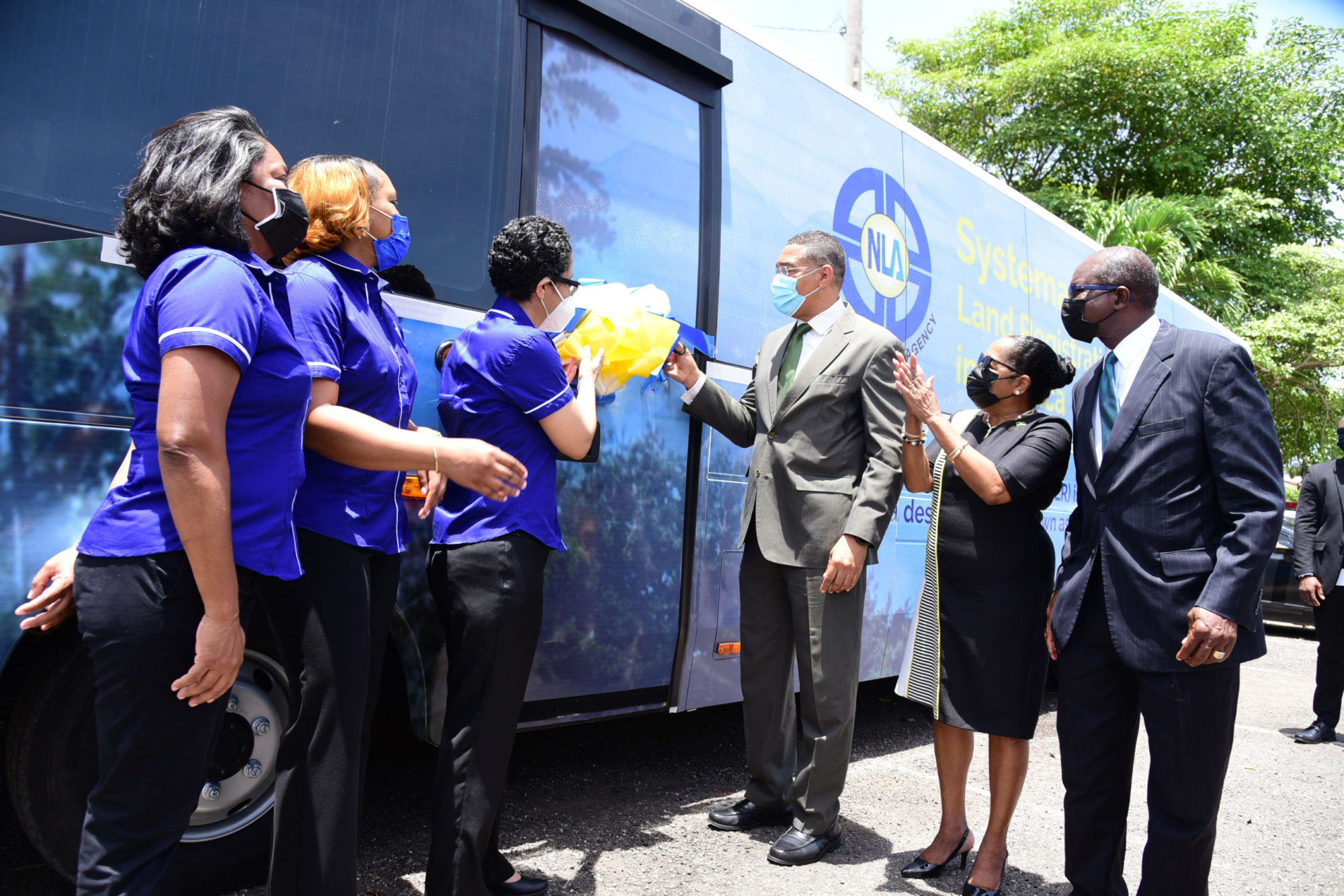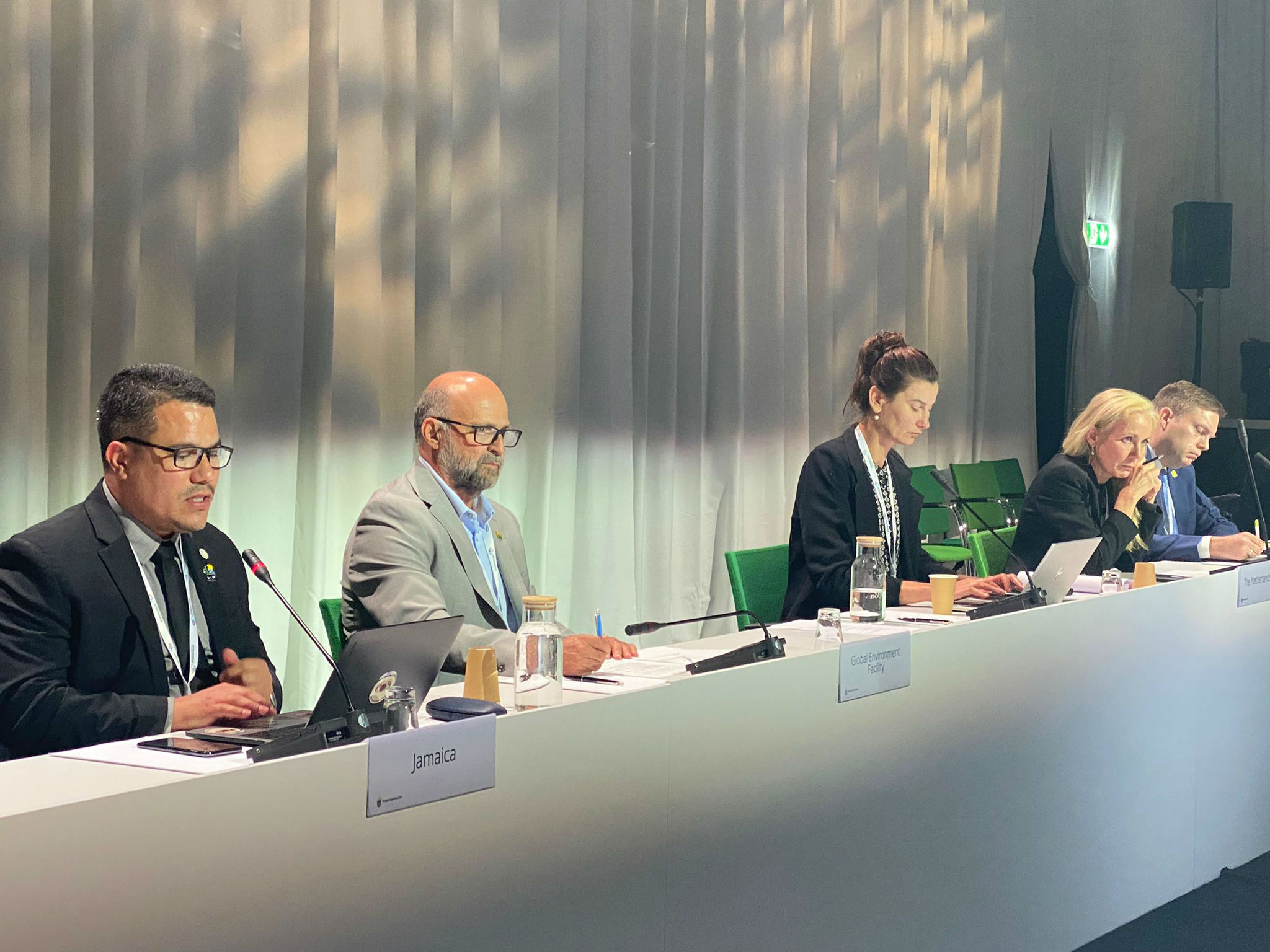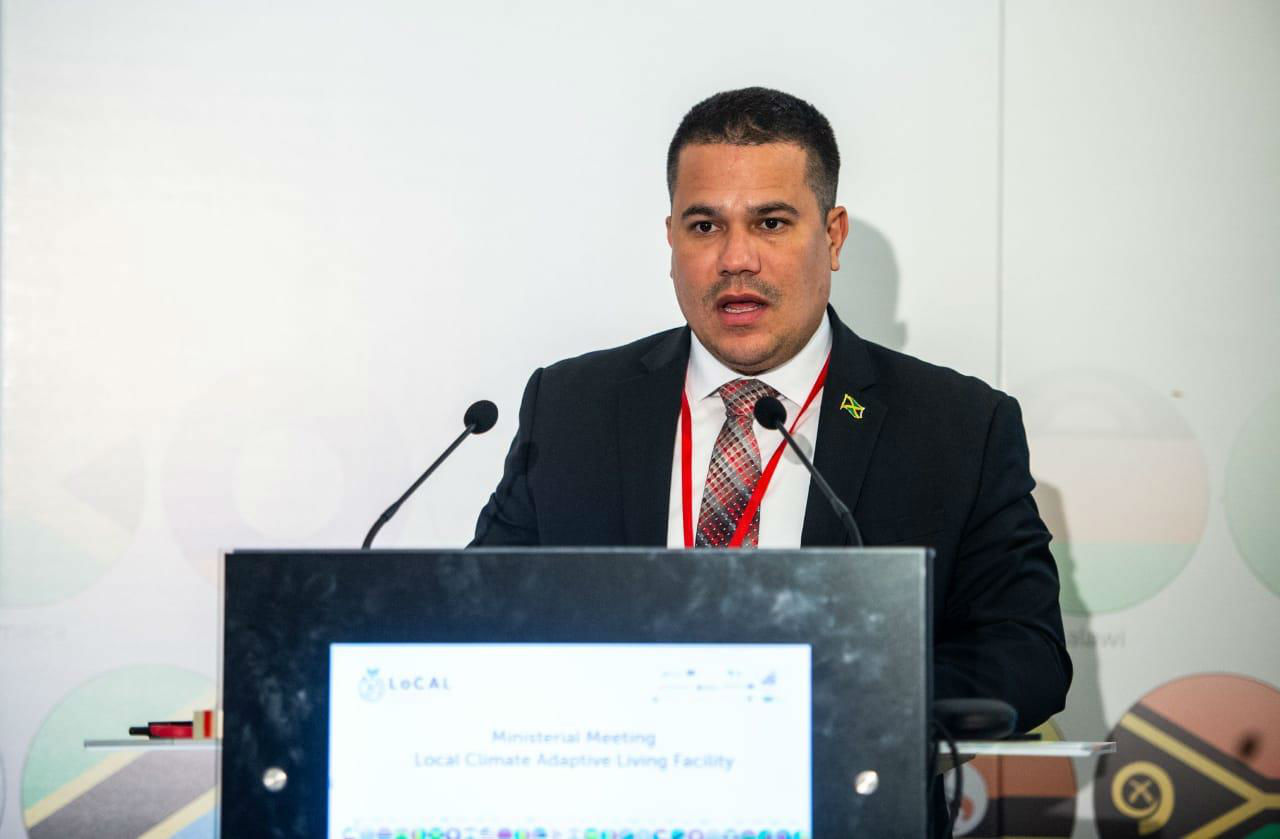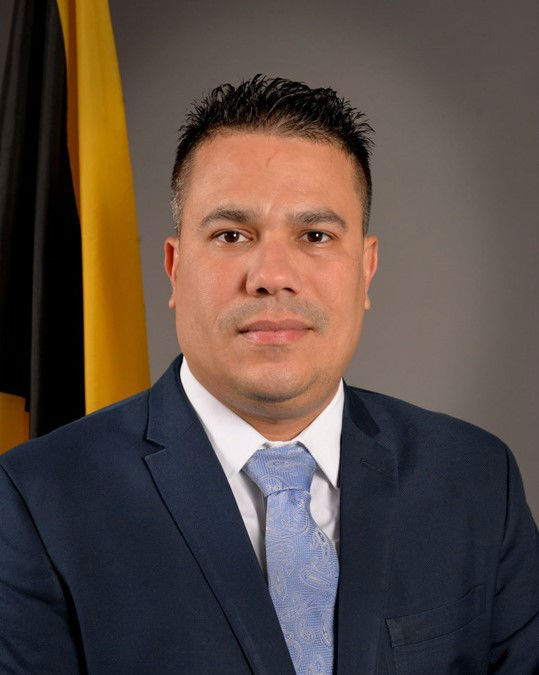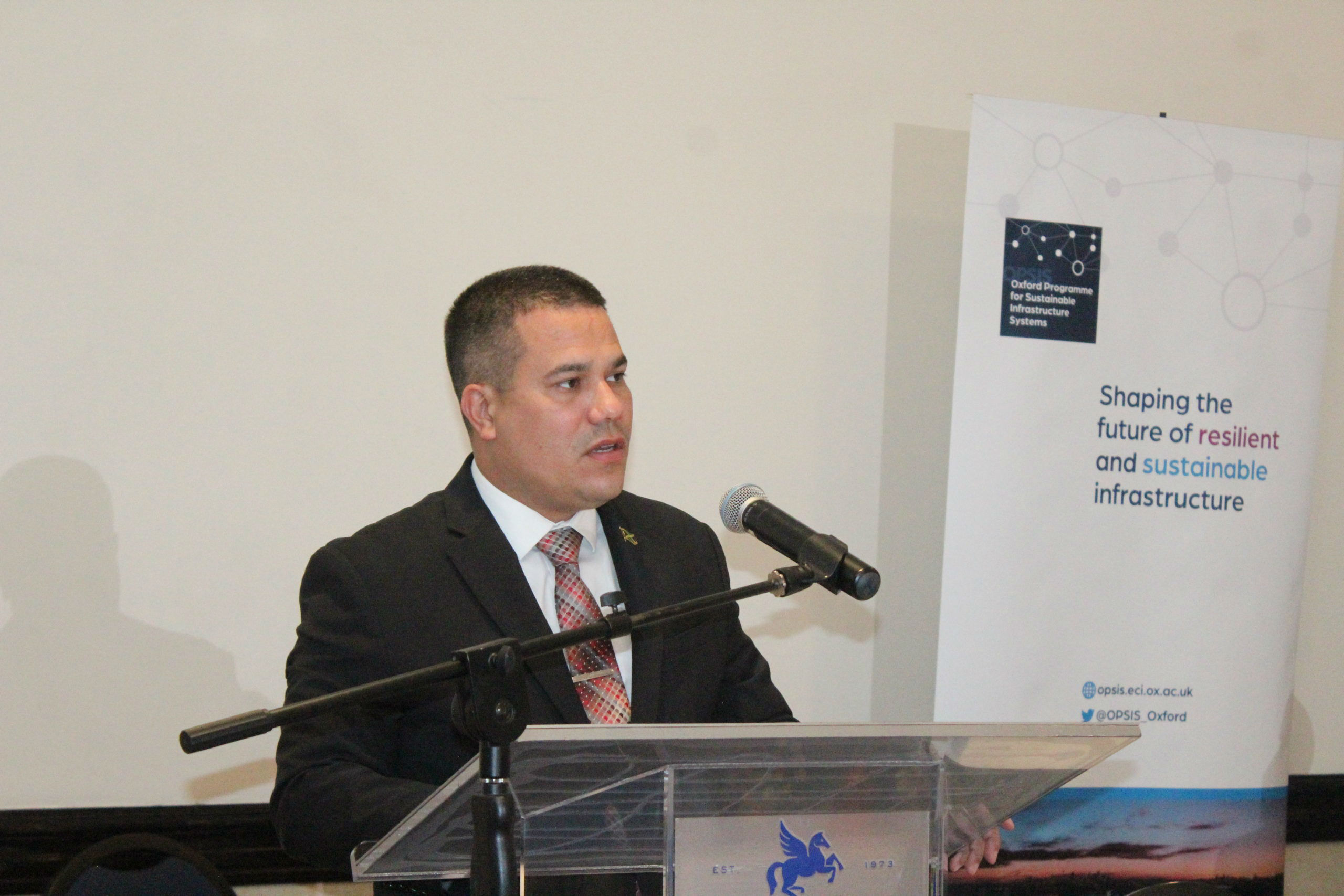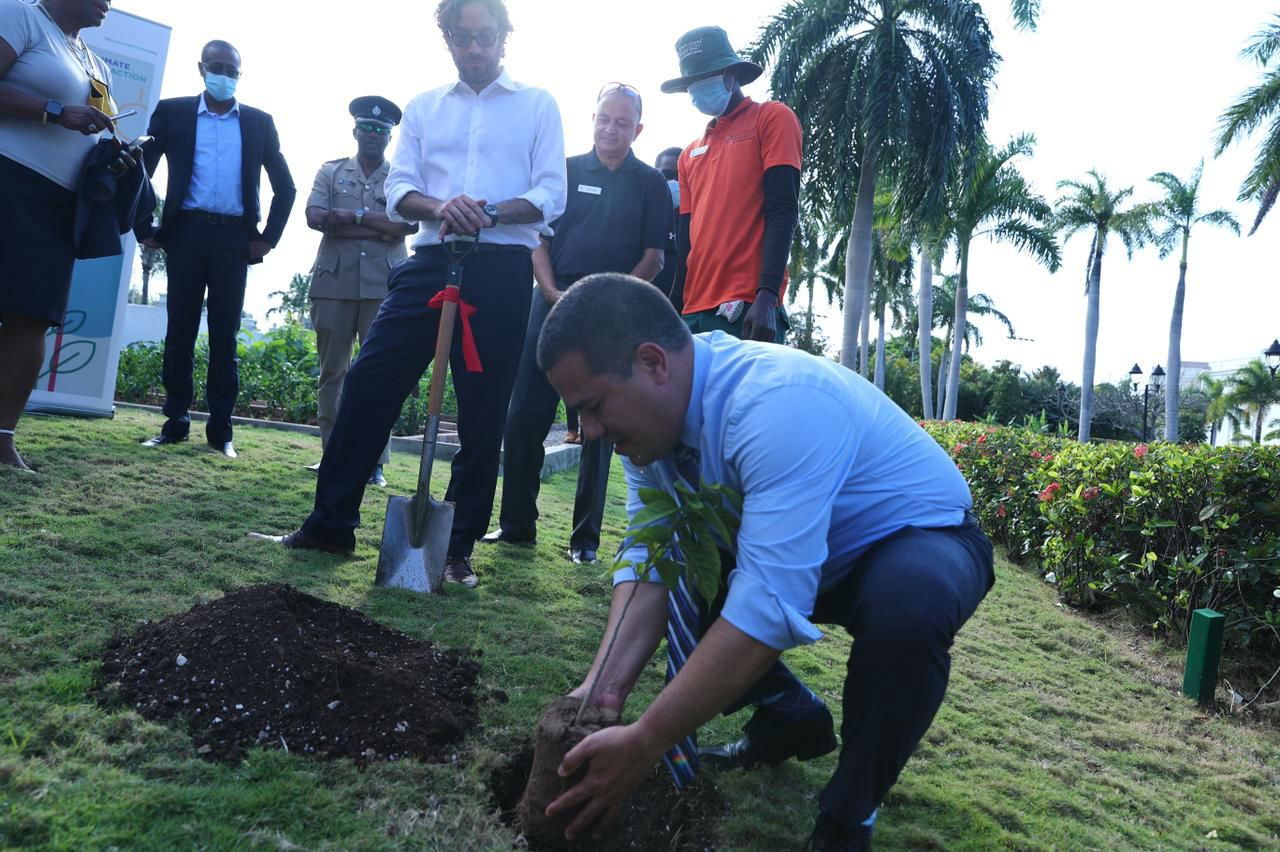Like other members of her community, Kereen Dawkins, the President of the Westgate Hills Citizens’ Association, is rejoicing following the installation of the Westgate Hills #2 Storage Tank that has been commissioned by Senator Matthew Samuda, Minister without Portfolio in the Ministry of Economic Growth and Job Creation.
Following the commissioning ceremony that was hosted by the National Water Commission (NWC) in the St James community on Thursday, June 17, 2022, Dawkins expressed gratitude for the installation of the tank that has a capacity of 100,000 US gallons and will serve residents of Westgate Hills.
“It’s amazing. Years in waiting. The residents of Westgate Hills are very thankful that the Commissioning is being done today,” she said.
She explained that the previous tank only had the capacity to maintain the community for half-day if there was a disruption.
However, with this new $30 million glass-fused-to steel bolted tank, the community will enjoy a more consistent water supply. In addition, there will be a reduction in energy consumption and Non-Revenue Water (NRW) losses.
Marlene Malahoo Forte, the Member of Parliament for St James West Central, also thanked the NWC for replacing the tank that will go a far way in serving the residents of the community. She also commended the NWC for delivering a quality project that will drastically improve the reliability of supply and applauded the future plans of the Commission to serve more customers in several surrounding communities.
Meanwhile, in his address to those in attendance, Senator Samuda lauded the NWC for replacing the Westgate Hills #2 Storage Tank.
However, he stressed that there is a need for the NWC to reduce its energy usage, as approximately $900 million of the Commission’s monthly revenue is spent on electrical energy.
“If we were able to contain this (energy costs) by upgrading our equipment that is inefficient and by looking at our engagement of renewables, we will be able to build far more systems like the one behind me, and the team is working around clock, looking at what can be done,” Samuda said.
By reducing its energy bill, Samuda believes that efficiency will improve significantly.
Nonetheless, he was also happy to announce that 30 other tanks across the island are now practically completed as part of the NWC’s Tank & Pump Rehabilitation for Operational Efficiency Improvement Programme. The tank component of the project cost the NWC approximately $575 million.
Through this project, the Commission has rehabilitated and re-commissioned of storage reservoirs; equip storage reservoirs with local water level monitoring and recording facilities complemented by SMS signalling and additional facilities to communicate water level data; optimised system pressure; reduced pump hours; and minimised peak hours pumping and maximised ‘Time-of-Use’ tariff regime.



